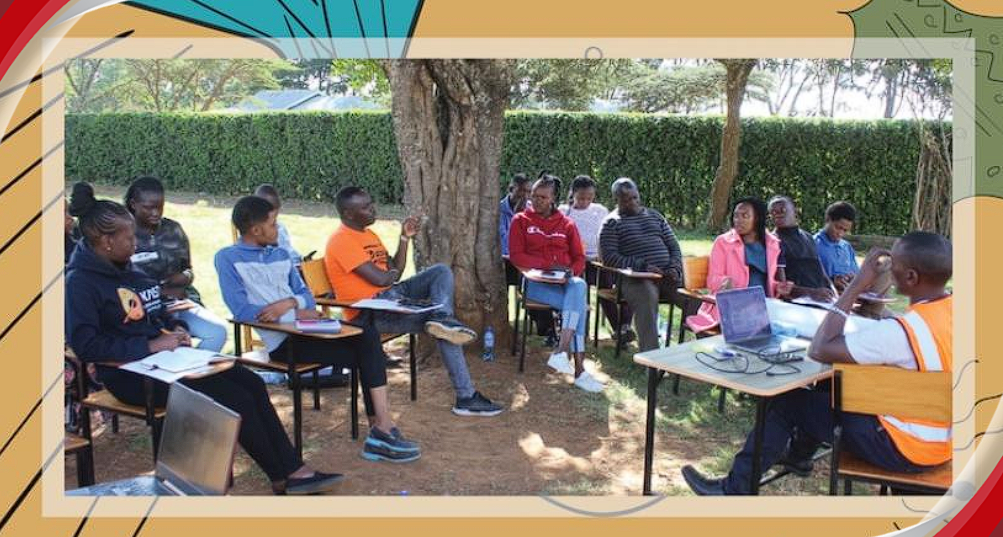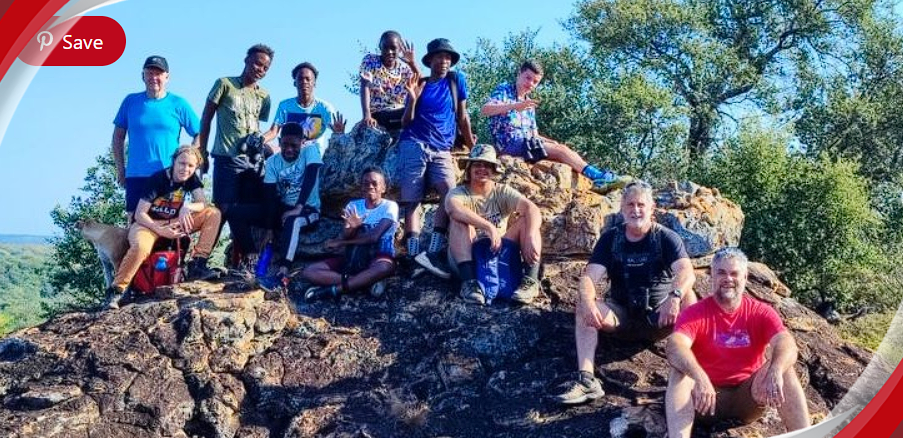Articles
Khulisa growers gain international knowledge in China
-
2 hours ago
It was an eye-opening, once-in-a-lifetime opportunity for two Sappi Khulisa growers to attend a green technologies-focused forestry training programme in China recently. This initiative, organised by the Department of Agriculture, Land Reform, and Rural Development (DALRRD), aimed to equip participants with the knowledge and skills needed to align their agricultural practices with global sustainability and food security goals.
Thandi Cynthia Mokoena from Mpumalanga, the owner of the Matsino Business Enterprise, an agroforestry project focused on timber production, crop production, and animal husbandry, oversees a forestry operation spanning 679.693 hectares and has been part of the Khulisa programme since 2019. When she heard about the opportunity, she encouraged Thembisa Mpengesi from the Eastern Cape, who oversees 9.7 hectares and has been a Khulisa member since 2014, to join her on this exciting journey.Both growers returned with a fresh perspective and a renewed eagerness to reshape agricultural methods in South Africa. A standout takeaway was the stark contrast between the two countries' approaches to farming. In China, sustainable and green technologies are deeply integrated into operations, with significant advancements in mechanisation. These efforts are driven by a shared goal: minimising environmental impact while maximising efficiency.
While Mokoena and Mpengesi value the traditional methodologies passed down through South Africa's agricultural history, they are excited about the potential to innovate. They see opportunities to adopt advanced equipment and practices that increase productivity and create safer working environments. "This unique opportunity allowed me to enhance my technical knowledge and gain insights into sustainable agricultural practices that I am now eager to apply within my own operations," said Mokoena.The journey wasn’t without its challenges. Being away from home and navigating language and cultural barriers required resilience and adaptability. However, their passion for their farms and effective communication skills enabled them to embrace this thrilling and insightful experience. Despite these challenges, the training was transformative. Mokoena and Mpengesi advise fellow Khulisa growers to seize international training opportunities, build networks with international experts, and adopt eco-friendly, resource-efficient methods to enhance productivity and sustainability.This programme not only broadened the growers' horizons but also demonstrated the value of global collaboration. The insights gained will contribute to the continued growth of the Sappi Khulisa programme, fostering innovation and sustainability across our operations. "As Khulisa growers, it is our responsibility to prioritise the adoption of eco-friendly and resource-efficient methodologies in our operations, promoting increased productivity and a sustainable working environment," emphasised Mpengesi.
"As part of the Khulisa programme, we encourage our growers to seek knowledge beyond what we offer locally. Opportunities like this training in China exposes them to global best practices, helping them adopt sustainable and innovative approaches. The insights they bring back not only enhance their operations but also inspire the entire Khulisa community to strive for greater productivity and environmental stewardship," added Sandile Nkosi, general manager at Sappi Khulisa.During their training in China, Mokoena and Mpengesi acquired key skills that are reshaping their agricultural practices. They learned about low-energy and controlled-atmosphere storage techniques, eco-friendly pest control methods, and sustainable packaging technologies. These innovations reduce post-harvest losses and promote environmental sustainability. Mokoena and Mpengesi are confident these techniques can strengthen food security and improve agricultural efficiency in South Africa.
Thandi Cynthia Mokoena from Mpumalanga, the owner of the Matsino Business Enterprise, an agroforestry project focused on timber production, crop production, and animal husbandry, oversees a forestry operation spanning 679.693 hectares and has been part of the Khulisa programme since 2019. When she heard about the opportunity, she encouraged Thembisa Mpengesi from the Eastern Cape, who oversees 9.7 hectares and has been a Khulisa member since 2014, to join her on this exciting journey.Both growers returned with a fresh perspective and a renewed eagerness to reshape agricultural methods in South Africa. A standout takeaway was the stark contrast between the two countries' approaches to farming. In China, sustainable and green technologies are deeply integrated into operations, with significant advancements in mechanisation. These efforts are driven by a shared goal: minimising environmental impact while maximising efficiency.
While Mokoena and Mpengesi value the traditional methodologies passed down through South Africa's agricultural history, they are excited about the potential to innovate. They see opportunities to adopt advanced equipment and practices that increase productivity and create safer working environments. "This unique opportunity allowed me to enhance my technical knowledge and gain insights into sustainable agricultural practices that I am now eager to apply within my own operations," said Mokoena.The journey wasn’t without its challenges. Being away from home and navigating language and cultural barriers required resilience and adaptability. However, their passion for their farms and effective communication skills enabled them to embrace this thrilling and insightful experience. Despite these challenges, the training was transformative. Mokoena and Mpengesi advise fellow Khulisa growers to seize international training opportunities, build networks with international experts, and adopt eco-friendly, resource-efficient methods to enhance productivity and sustainability.This programme not only broadened the growers' horizons but also demonstrated the value of global collaboration. The insights gained will contribute to the continued growth of the Sappi Khulisa programme, fostering innovation and sustainability across our operations. "As Khulisa growers, it is our responsibility to prioritise the adoption of eco-friendly and resource-efficient methodologies in our operations, promoting increased productivity and a sustainable working environment," emphasised Mpengesi.
"As part of the Khulisa programme, we encourage our growers to seek knowledge beyond what we offer locally. Opportunities like this training in China exposes them to global best practices, helping them adopt sustainable and innovative approaches. The insights they bring back not only enhance their operations but also inspire the entire Khulisa community to strive for greater productivity and environmental stewardship," added Sandile Nkosi, general manager at Sappi Khulisa.During their training in China, Mokoena and Mpengesi acquired key skills that are reshaping their agricultural practices. They learned about low-energy and controlled-atmosphere storage techniques, eco-friendly pest control methods, and sustainable packaging technologies. These innovations reduce post-harvest losses and promote environmental sustainability. Mokoena and Mpengesi are confident these techniques can strengthen food security and improve agricultural efficiency in South Africa.
Related Articles Posts
Categories
Popular Post
-
 SA’s IT spend to outpace GDP growth 1 year ago
SA’s IT spend to outpace GDP growth 1 year ago -
 Vodacom, Netstar launch free in-taxi Wi-... 1 year ago
Vodacom, Netstar launch free in-taxi Wi-... 1 year ago -
 South Africa under pressure to fill cybe... 1 year ago
South Africa under pressure to fill cybe... 1 year ago -
 Organisations with a strong employee val... 1 year ago
Organisations with a strong employee val... 1 year ago -
 Joint policy-in-action event highlights... 1 year ago
Joint policy-in-action event highlights... 1 year ago -
 Boost your digital transformation journe... 1 year ago
Boost your digital transformation journe... 1 year ago








